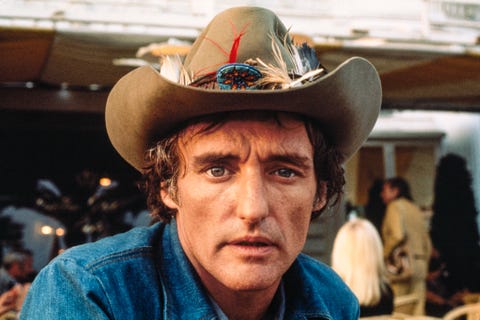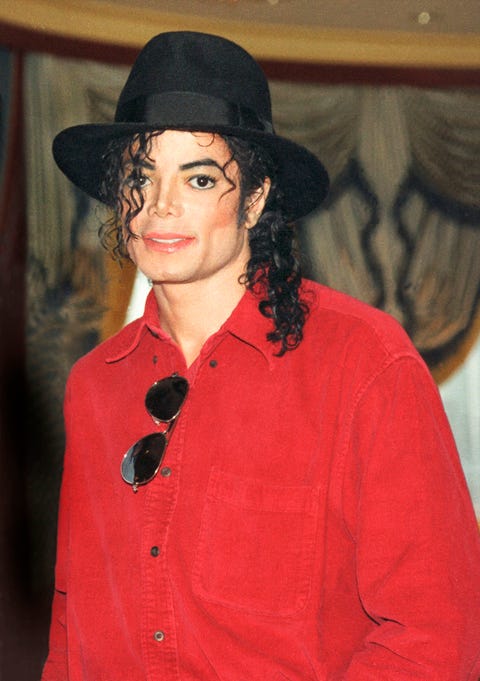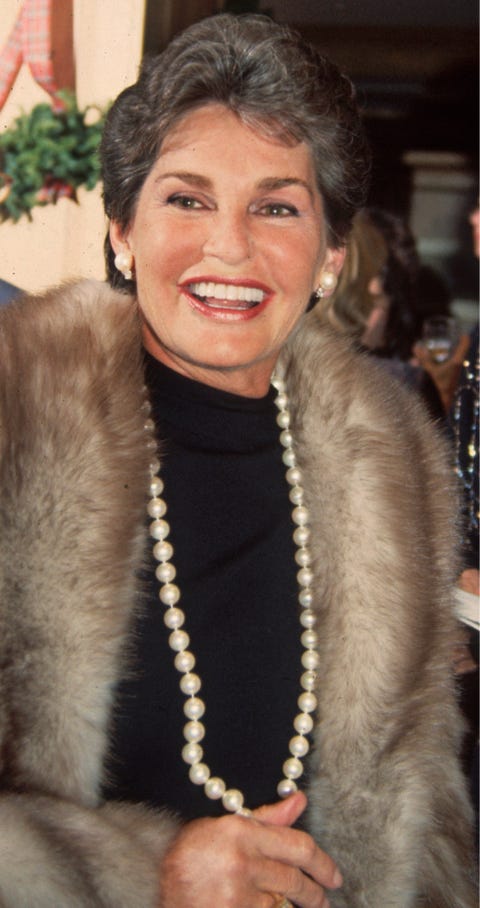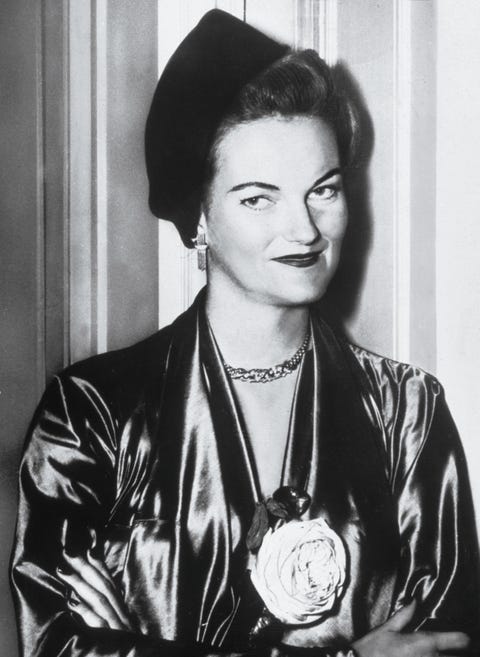how to file for executor of estate without will
It's hard to find good help, especially when you're dead. Choosing an estate's executor, the person who carries out the terms of a will, is a fraught decision, and whether you tap a friend, family member, lawyer, or bank, the outcome is never certain—and you won't be around to oversee the operation, anyway. Dispersals get more complicated when the estate is large, but the burden of being an executor is never just about money; often its difficulties stem from emotional, and sometimes ambiguous, relationships.
Take the case of Brooke Astor. Before she died, in 2007, the New York society doyenne was caught between competing forces. Her executor and only son, Anthony Marshall (who himself died in 2014), worked with lawyer Francis X. Morrissey Jr. to plan Astor's estate, but Marshall (pictured above with his mother) was later convicted of larceny and Morrissey of fraud and conspiracy, with allegations of elder abuse leveled at Marshall.
On the other side were Astor's friend Annette de la Renta and Astor's grandson Philip Marshall, who had the backing of lawyers from JPMorgan Chase; they felt that Anthony had taken advantage of his mother. Each side claimed it knew Astor's true intentions, but eventually a settlement was reached in 2012 that reportedly saw Anthony Marshall's inheritance halved.
If the executor had been an unbiased third party, the conflict might have never happened. "All I can say is that it's very important that an executor doesn't have a dog in the fight,"says Alex Hitz, an author who has been named the executor of 18 estates of friends and relations, including Dennis Hopper's.

CATERINE MILINAIRE/SYGMA VIA GETTY IMAGES
Really, an executor's role is simple. "I like to think of the executor as the CEO of the estate," says Michael Arlein, the chair of trusts and estates at the Manhattan law firm Patterson Belknap Webb & Tyler. "Legally, your job entails gathering information on what assets the person owned, filing tax returns that are needed, paying the person's debts and other claims that are made against the estate, and ultimately disposing of the person's assets in accordance with the will."
According to Arlein, executors usually come from within the family, but that doesn't mean they do the job alone. They hire lawyers to help deal with any family dysfunction that might have kept the various factions from speaking, let alone divvying up property.
Yet an executor shouldn't be a total stranger, such as a lawyer who draws up a will at the last minute. Intimacy might be the most important quality to keep in mind. "A client may have an accountant whom he's been using for 20 years. Why not name the accountant?" So says Gideon Rothschild of the Manhattan firm Moses & Singer. "I don't think a lawyer is the right candidate for this job, unless there's absolutely no one else."

Phil Dent/Redferns
Case in point: After Michael Jackson's 2009 death, John Branca, an entertainment lawyer, and John McClain, a music industry executive, were named the executors of the pop star's estate, but Jackson's family has been struggling against their decisions, despite the estate being put on the path to solvency.
"We do not respect you as executors," Janet Jackson and four of her siblings wrote in a letter in 2012, accusing the pair of fraud. The acrimony might not be the executors' fault: An estate spokesperson has noted that the complaints come from those Michael left out of his will.
It's easy to accuse executors of mismanagement, because—unlike the inheritors—they're often getting paid to do the dirty work. "The law provides for reasonable compensation,"Arlein says. The fee structure is based on percentages. In New York, according to the Surrogate's Court Procedure Act, an executor gets 5 percent of the first $100,000 of the estate, 4 percent of the next $200,000, 3 percent of the next $700,000, 2.5 percent on the next $4 million, and 2 percent on anything above $5 million.

TOM GATES/HULTON ARCHIVE/GETTY IMAGES
For a really big estate the fee could easily amount to millions. And unless otherwise specified, lawyers who are named executors will take the same bonus on top of any legal fees they are owed.
The hotelier Leona Helmsley left an estate worth $5 billion and put a proviso in her will that her executors—her former attorney Sandor Frankel, her friend John Codey, her brother, and two of her grandchildren—wouldn't be paid the usual executor fee. They managed to get $900,000 upfront for their work, but they're still struggling in court for the remainder. Helmsley famously left $12 million to her Maltese, Trouble.
Taking control of a large estate might seem like a glamorous job from the outside. Executors hold the ultimate responsibility for interpreting the desires of the deceased. "Ambiguity is the great foe of executors," Hitz says. "If something isn't spelled out specifically in the will, you go back to what the intent of the grantor would be." But it can be difficult, not to mention dark, to play medium. "It's such a macabre thing. You need to keep a sense of humor," Hitz adds. "A sense of fairness, and a sense of humor."

NEW YORK TIMES/GETTY IMAGES
Even the most familiar executor can misinterpret the dead person's intentions, however. Doris Duke named her butler, Bernard Lafferty, co-executor along with a trust bank, but a court soon found that he was abusing the estate's wealth for his own luxurious benefit, living in Duke's mansions and driving her cars as if they were his own, as the New York Times reported in 1996. He was reportedly later paid $4.5 million in executor fees and $500,000 a year just to stay out of the picture.
Executors have to take control of passive investments, active businesses, and, ultimately, the very legacy of the deceased. Artists' estates provide a particular challenge. When Donald Judd died, in 1994, his children Rainer and Flavin Judd found themselves named two of his estate's three executors. "When Don died, I assumed that lawyers would take care of his estate. I was mistaken," Flavin says. "Rainer and I quickly learned that the lawyers didn't know anything and that very few people were interested in doing what Don actually wanted, so it fell to us."
Their projects have included maintaining the Judd Foundation, Judd's compound in Marfa, Texas, and restoring the artist's loft in Manhattan. After 23 years the drama has stabilized, but the work continues. "What are you going to do? It was either take on the role or let other people chop up and sell Don's work for their own benefit," Flavin says. "The list of things to do will outlive us, but we want to set up a way of approaching problems so that the resulting solutions are in line with what Don would have wanted."
Managing artists' estates has become an industry for some top-tier art galleries. An artist's dealer can work as a kind of artistic executor, ensuring posthumous longevity and making sure any pieces left behind are properly dealt with.
"We became a gallery that represents estates by accident, because we have such long relationships with our artists," says Marc Glimcher, president of Pace Gallery, which represents the estates of such artists as Alexander Calder and Sol LeWitt.
Glimcher has dealt with death quite often, on the collector's side as well as the artist's.
"People are so bad at estate planning," he says. And there are no guarantees. Even if a collector consults with the gallery, the liquidation of a collection can happen faster than expected. "Some people come and make a plan, and then sometimes the family's like, 'We're not doing that, sorry.' The decisions rest with the people left behind."
So be careful whom you pick—in most cases, the executor has the final word.
This story appears in the November 2017 issue of Town & Country. Subscribe Now
This content is created and maintained by a third party, and imported onto this page to help users provide their email addresses. You may be able to find more information about this and similar content at piano.io
how to file for executor of estate without will
Source: https://www.townandcountrymag.com/society/money-and-power/a13034047/executor-role-for-large-estates/
Posted by: eppersonsuldatime.blogspot.com

0 Response to "how to file for executor of estate without will"
Post a Comment